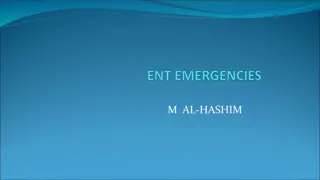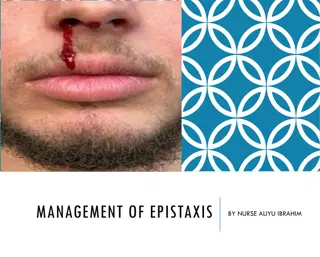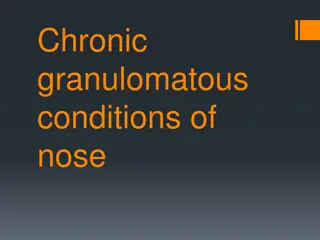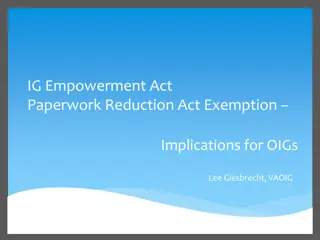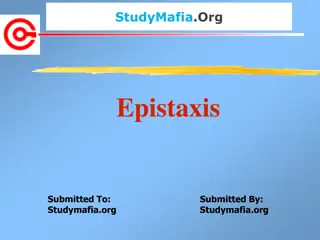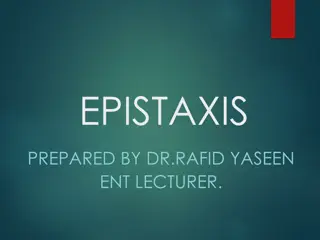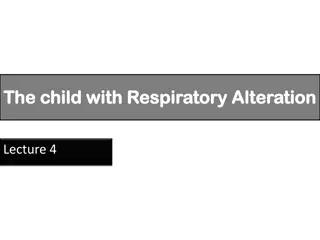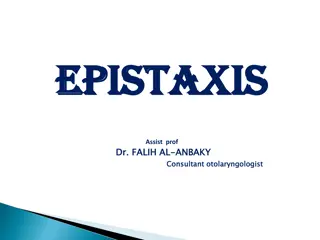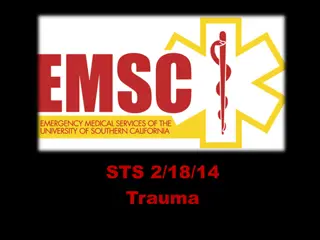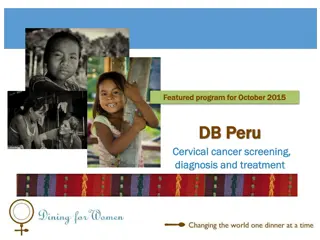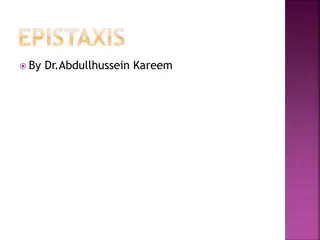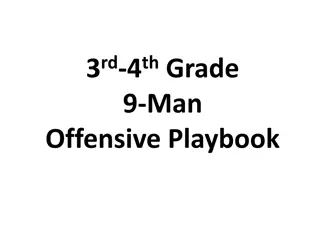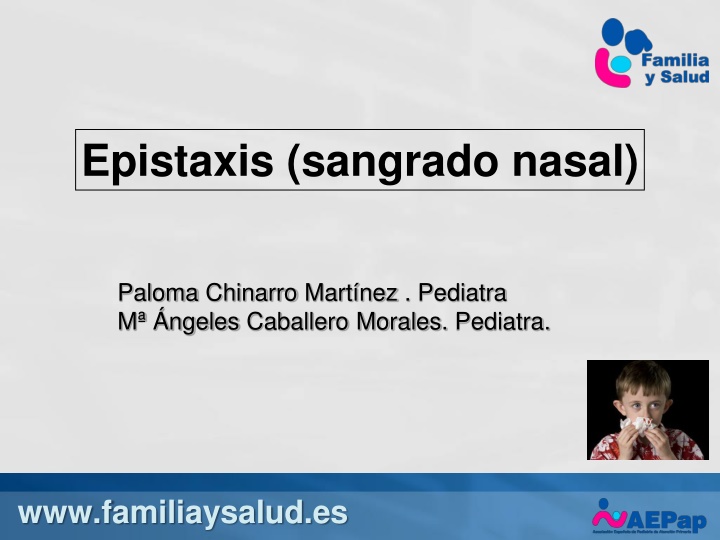
Epistaxis: Causes, Treatment, and Prevention
Learn about epistaxis (nosebleed), its causes, treatment, and prevention. Discover why it occurs, how to treat it, and ways to prevent it, especially in children. Find out when to seek medical help and what steps to take to manage this common issue effectively.
Uploaded on | 0 Views
Download Presentation

Please find below an Image/Link to download the presentation.
The content on the website is provided AS IS for your information and personal use only. It may not be sold, licensed, or shared on other websites without obtaining consent from the author. If you encounter any issues during the download, it is possible that the publisher has removed the file from their server.
You are allowed to download the files provided on this website for personal or commercial use, subject to the condition that they are used lawfully. All files are the property of their respective owners.
The content on the website is provided AS IS for your information and personal use only. It may not be sold, licensed, or shared on other websites without obtaining consent from the author.
E N D
Presentation Transcript
Epistaxis (sangrado nasal) Paloma Chinarro Mart nez . Pediatra M ngeles Caballero Morales. Pediatra. www.familiaysalud.es
Qu es una epistaxis? Viene del griego y quiere decir goteo Se refiere a un sangrado o hemorragia de la nariz. Se debe a una rotura de un vaso sangu neo en el rea de Kiesselbach (zona anterior y baja del tabique nasal). Fuente: https://medicoblasto.com Es muy frecuente entre 2 y 15 a os. www.familiaysalud.es
Porqu se produce? Por el h bito de excavar en la nariz: m s frecuente en ni os con alergias y picor nasal. Sequedad nasal y catarros ( puede ocurrir por la noche). Menos frecuente: alteraci n de la coagulaci n o hipertensi n arterial. www.familiaysalud.es
Cmo se trata? Para cortar la hemorragia lo mas sencillo es apretar la nariz con los dedos. Hacer pinza con el dedo ndice y pulgar con la fuerza suficiente para dejar de sangrar. El ni o debe estar sentado o de pie con la cabeza en posici n habitual. En hemorragias graves o recurrentes puede hacer falta acudir al hospital. www.familiaysalud.es
Cmo se previene? Evitar m nimos traumatismos nasales: rascarse la nariz, golpes etc Utilizar humidificadores en dormitorios , con ambientes secos o c lidos www.familiaysalud.es


